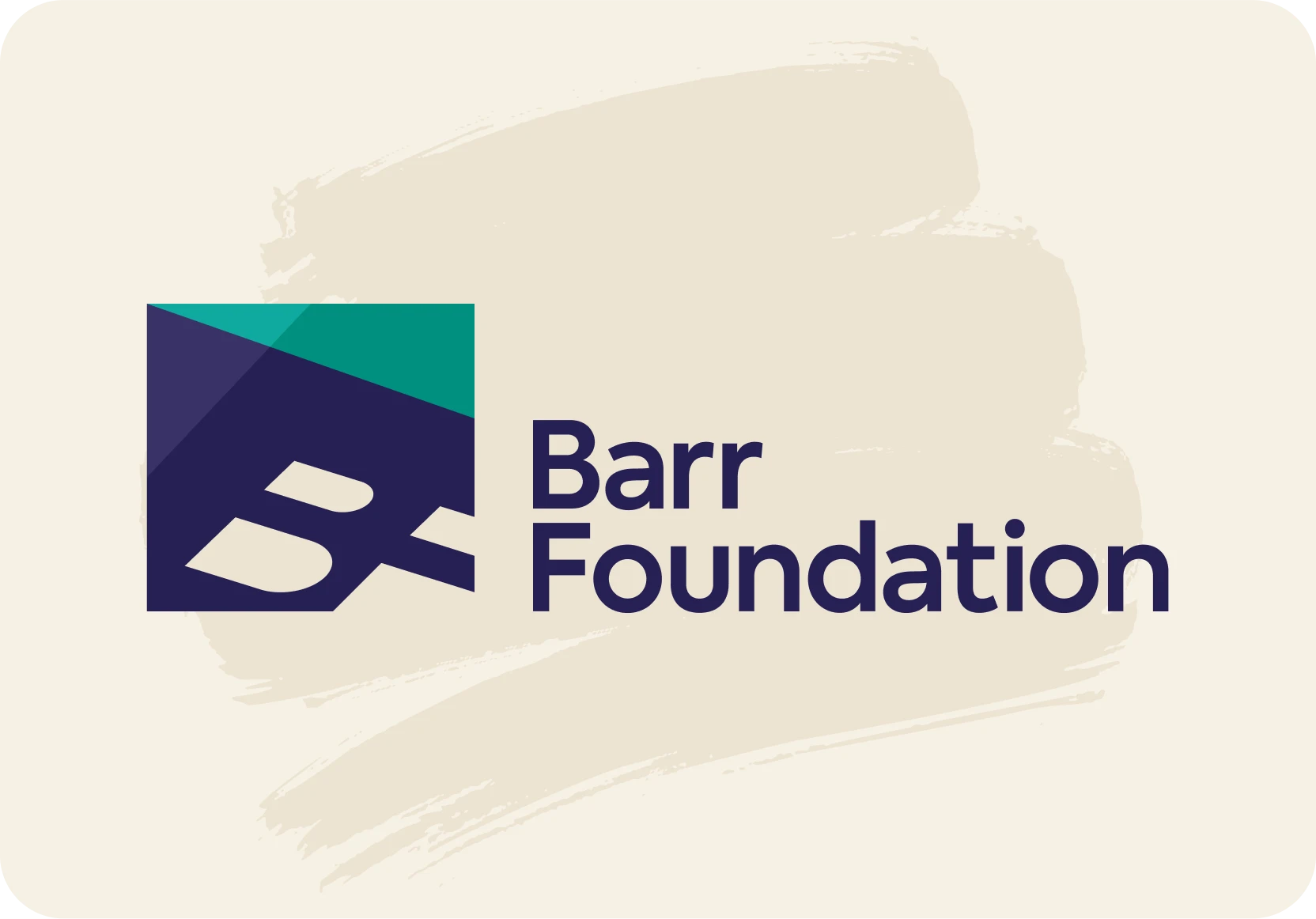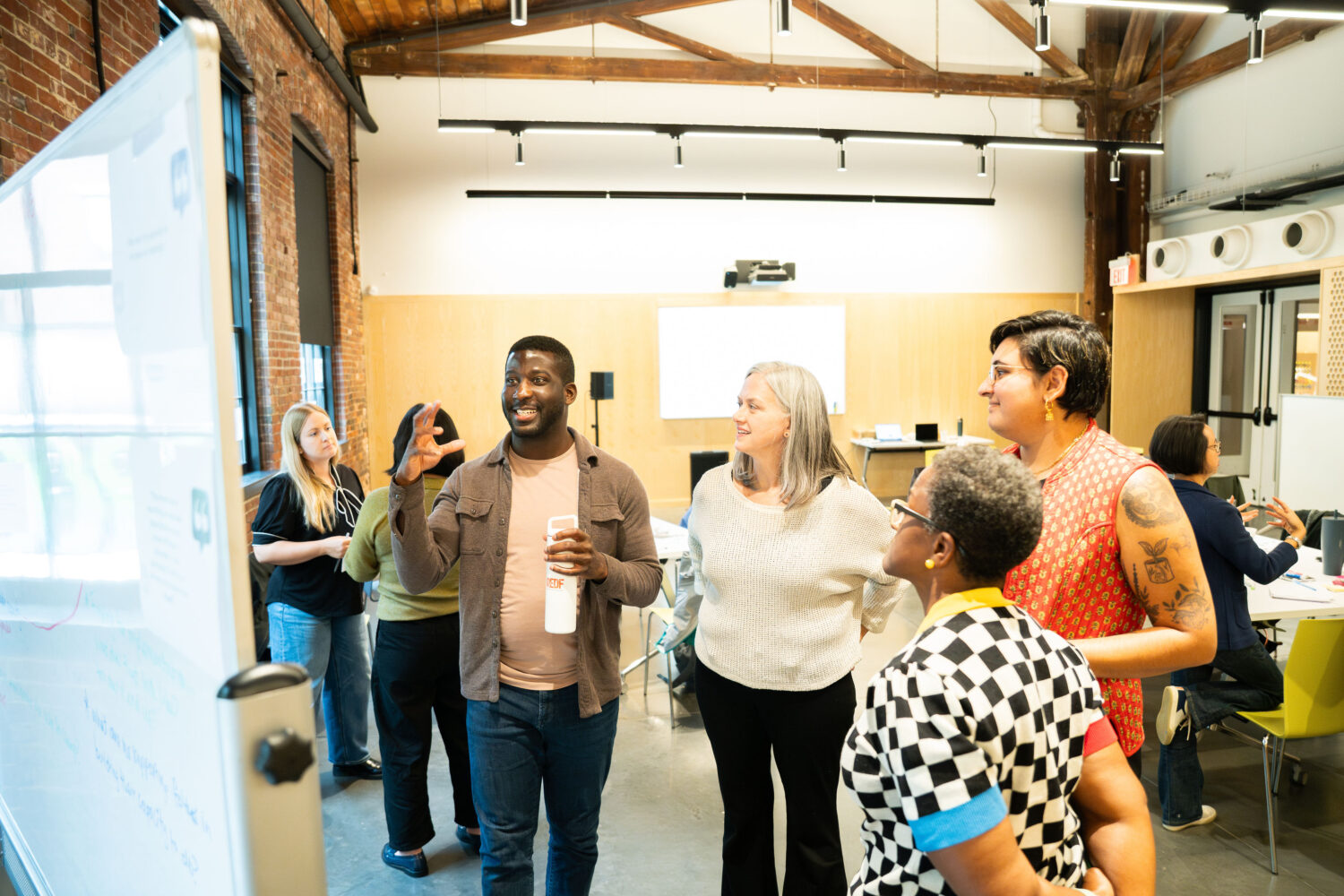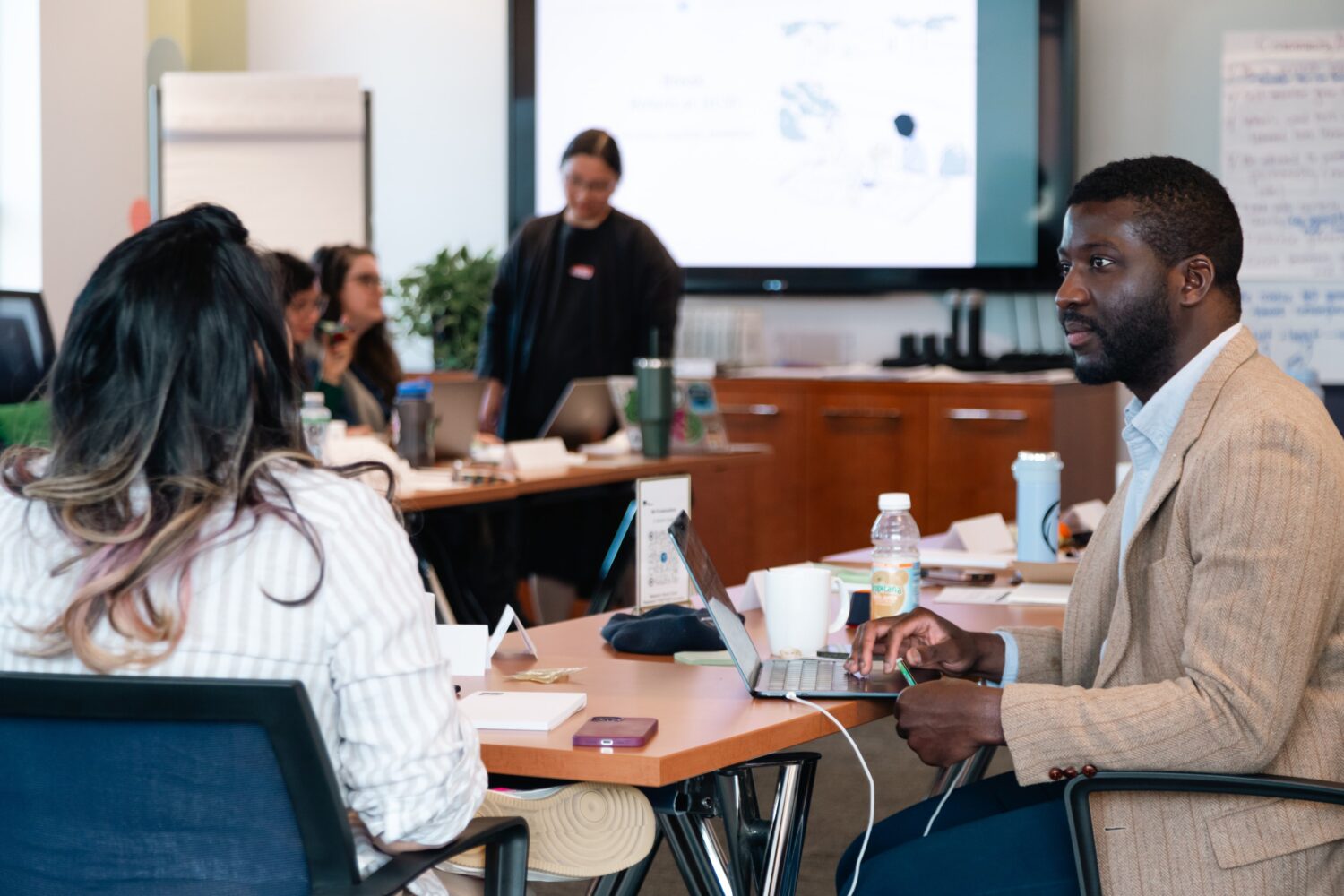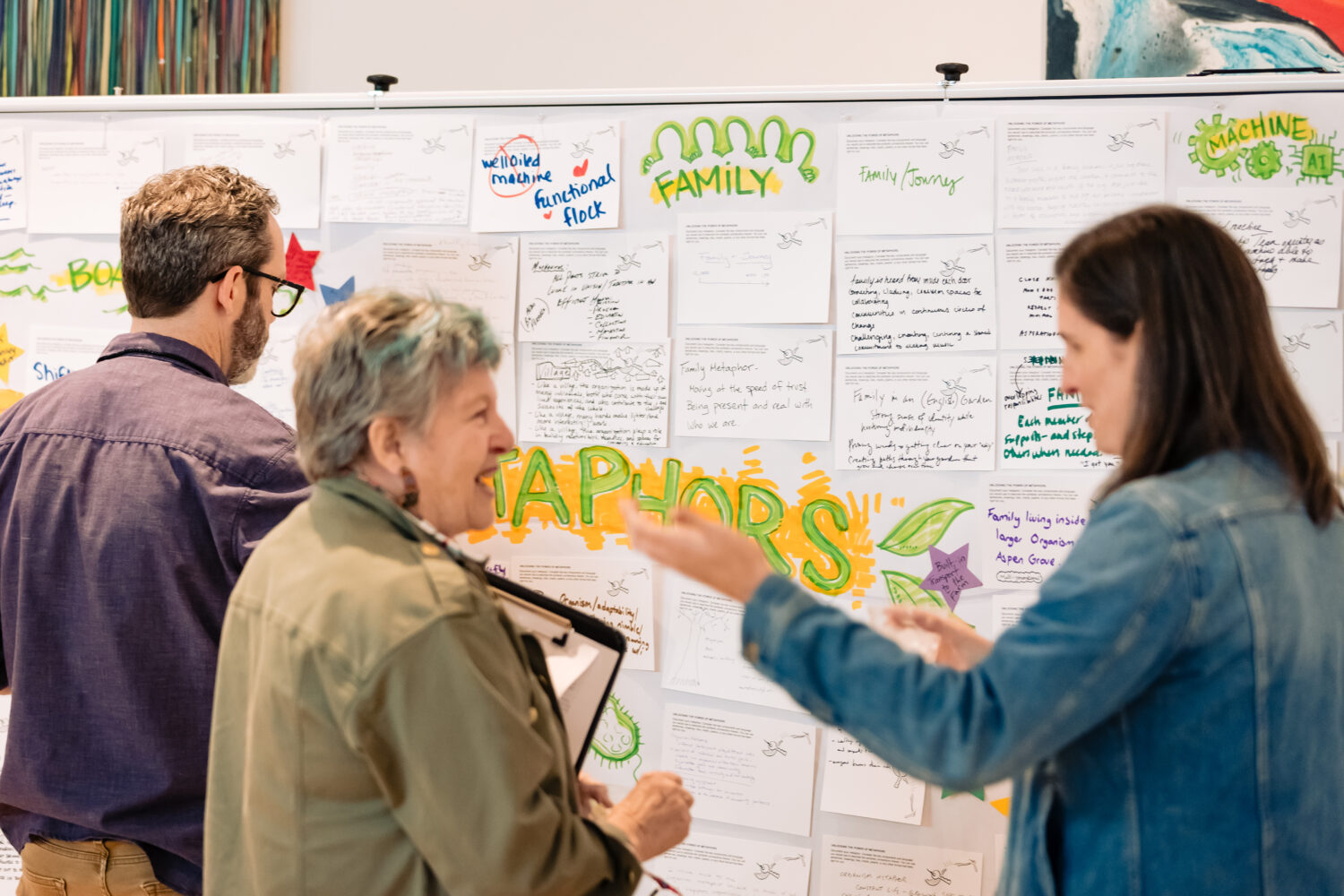If spending more and more on “solutions that don’t make things better—and arguably even make them worse—is a variation of insanity,” then a new approach to fighting poverty that actually helps families lift themselves into middle-class security could aptly be called a stroke of genius.
Despite decades and uncountable dollars and hours spent on programs for the poor, there are far too few examples of families breaking out of what can be a generational rut. But that storyline is changing—thanks to a new approach first piloted in Oakland and San Francisco and, since 2010, taking root in Boston. This past June,Barr’s Deputy Director Melinda Marble and Stefan Lanfer, knowledge officer, spoke with Jesús Gerena, who is leading the local effort to find out more.
In 2000, California Governor Jerry Brown was mayor of the City of Oakland. And he was fed up. Despite millions spent on programs to help poor families, the problem wasn’t going away. Families were still poor and still dependent on public assistance. At the same time, in the corner office of a much-celebrated nonprofit across town, Maurice Lim Miller was puzzling over the same issue. After working in community development for 20 years he was starting to see the children of the kids he’d worked with years earlier seeking the same kind of help as their parents. So when Brown called on Lim Miller and challenged him to come up with a new approach, he was ready.
To begin, Lim Miller set aside the conventional wisdom of his field and years of experience. Instead he looked to the example of his mother who had led his family out of poverty. He also studied other working families and immigrant communities that had found the elusive pathways to middle-class security. The common thread? They all relied on themselves and each other, not handouts. With this insight, Maurice launched the Family Independence Initiative (FII) in 2001. Organized into cohorts of five or six families, participants worked together to set and reach financial academic and other goals. In exchange for monthly reporting on their approaches, their progress, their successes, and their challenges, they received small stipends from FII. After two years, members of that original cohort saw household incomes jump by 23% and savings by 240%. Fifteen families became first-time home owners. Twenty-eight expanded existing businesses or launched on new business ventures.
In the years that followed, FII expanded in Oakland, San Francisco, and then to Oahu, Hawaii. In the fall of 2009, FII came to Boston—with support from Barr and other local funders attracted by its potential for the city. Jesús Gerena, formerly of Hyde Square Task Force, was tapped to lead the effort. In June 2010, FII Boston launched with 35 families. Within six months those families saw an average increase in household income of 13% and a 29% increase in savings—and they were making progress on a host of other self-defined goals.
MELINDA: What drew you to the Family Independence Initiative?
JESUS: I was hooked the first time I heard Maurice Lim Miller talk about FII. He began with his story focusing on his mom and the ways she pushed to lift their family out of poverty. His story is so much like my own. I’m the youngest of three kids. When I was 10 my mum moved us from Puerto Rico to Amherst Massachusetts. She had 80 dollars in her pocket and a dream of doing better. Her sister had moved here a year before. They connected and really supported each other.
MELINDA: What was that like coming to Amherst from Puerto Rico?
JESUS: Cold. Although at the beginning I remember thinking “This is like air conditioning. NICE and cold!” 20 years later the winters have beaten me up a bit.
MELINDA: Say more about the connections your mom and aunt made when you arrived.
JESUS: As soon as we landed people started coming to our house. One of them taught at a school of education. He made a contact for my aunt to be able to get her Masters. Someone else helped my mum pursue her BA. Someone else connected us to a dance troupe someone else to a church. At the start there were eight of us in a two-bedroom apartment. But soon we found someone willing to cosign for us to get our own place. Little by little all these connections added up to resources and to our family finding the avenues we needed to thrive.
MELINDA: In a way FII is an effort to replicate the same kind of natural network that many families – particularly newcomer families – find when they come to this country. Is that right?
JESUS: That’s it exactly.
MELINDA: Talk about how this work has been taking shape in Boston.
JESUS: Sure. When I first started my main goal was to find those natural communities that are already connected and supporting each other – and to identify the real connectors and leaders along with the folks who are ready to take off but just need a launching pad. Most folks like my mum actually just need a little push.
MELINDA: In general FII families don’t qualify for public assistance even if they’re just above the line right?
JESUS: Yes. For most of our families either they make too much or even if they’re below the line they may choose not to take any assistance because of the stigma they attach to it
MELINDA: That is always what attracted me to FII – it isn’t one more program that won’t do anything for families until they fall into crisis. Instead you help them build initiative and strengthen networks that push the risk of crisis further away. So you start by finding these connectors. What next?
JESUS: I leave it to them to organize a group of their colleagues friends neighbors or extended family. There could be deep relationships already but there don’t have to be. The key is some level of trust and a willingness to deepen that trust because we ask them to make a two-year commitment to their group and to us and to meet monthly and share data.
MELINDA: Data about what?
JESUS: Data about things like education housing assets and liabilities income… and also about how they are drawing from and giving to their networks. Everything is totally confidential. They go to a password-protected place on our website login and then self report. We give them all laptops so there is no technological barrier. And they’re responsible to report back by the 7th of each month. Then every three months we sit down with them and audit. We say great you went to the doctors this many times to take care of your sons? Show me proof. Your kids’ grades improved? Show me proof. You helped someone by giving them a couch to sleep on? Give me their name and number so we can check. So we trust but verify. And for all of that we give them a stipend of up to $600 every three months.
MELINDA: Where the exact amount depends on the specific goals they’ve been working on and whether they’ve achieved them?
JESUS: That’s right. We allocate up to $30 per question that they answer per individual in a household. And this is really a major differentiator between FII and traditional service programs. We look at the whole household.
MELINDA: So a cohort of six families might be 30 or 35 people that are being reached?
JESUS: Yes. We have six cohorts now. That’s 35 families representing 152 adults and children.
MELINDA: What happens at your monthly meetings?
JESUS: We run the first meeting. We introduce FII give out computers and show them the website. Then we say “OK now you know how it all works. The next meeting is up to you.”
MELINDA: No helping?
JESUS: No helping. Our staff is trained from the beginning just to listen to capture stories and to trust that the families can figure this out on their own. If the staff becomes too helpful they can’t work with us. We have to trust that families know better than anybody else how to achieve their goals. This was true in Maurice’s family. It was true in my family. And it’s true with the FII families. They just need opportunities. They need to see their efforts matched with results.
MELINDA: When I visited one of your meetings and met some of the families I was really struck by how close they’ve gotten and how they seem to rely on each other.
JESUS: It is amazing. Some of the groups have just taken off. One of my favorite stories is from our Puerto Rican/Dominican cohort that started in June 2010. One of the women was considering going back to school. She mentioned this at an early meeting. By the time we got to August members of her group asked “OK. Did you enroll?” When she said “No” and made excuses the group jumped on her. “What are you doing?” they asked. “It’s already August. September is right around the corner!” They pushed her in the meeting. Then they called her afterwards. In fact we learned that several in her cohort made a pact with each other to harass her until she followed through. By the October meeting not only had she enrolled but she had turned in a first paper and just gotten her grade – an A. She started crying. “If it wasn’t for this support” she said “I never would have enrolled – all because I was afraid I wasn’t going to make it. Now I’ve proven to myself I can.” Little by little she’s on her way now.
MELINDA: What is the data on results so far?
JESUS: In the first six months we saw a 13% increase in income for all of the families and a 29% increase in savings along with hundreds upon hundreds of activities to meet other goals. Let me give you another of my favorite examples – Candace whom I think you met.
MELINDA: I definitely remember her.
JESUS: This year she got her driver’s license. She got a job. She enrolled in school. Her husband is also taking classes for a nursing degree. They started saving to buy a home. There’s more I’m forgetting but you get a sense for all these little and not so little activities that accumulate to a lot. Now Candace and her husband are on track to buy a home. And this is not just wishful thinking. Candace is very self aware about their circumstances. A few months ago they lost a member of the family. And the costs associated with that put them back on their heels. It is just like you were saying Melinda – these families may be technically above the poverty line but they are just one emergency away from being in the poor house. So Candace will tell you “As long as we don’t have another emergency we’ll be okay and we’ll probably be able to buy a house.” She knows there is still a ways to go. But for the first time her efforts are getting traction. And no matter what they have this community supporting them. Even as Candace and her husband build their financial safety net this community is their safety net too.
MELINDA: I used to work in homelessness. The people who show up at shelters – more often than not it is families without money and without a safety net. So I hear the importance of that. But what do you say to skeptics to people who look at FII and ask “Wouldn’t these families make it anyway? Aren’t they already enterprising?”
JESUS: Clearly there is some self selection. We may talk to 35 individuals but only five join. And in many cases they are already leaders. They are the ones finding opportunities for themselves and for others and finding FII is one example. So yes I would say some of the participants would do great things on their own. But more often than not if you ask the families they will point to new connections they’ve made and to the power of having this cohort behind them saying – and showing – “I’m invested in your success.”
MELINDA: And also making a habit of talking about goals.
JESUS: Definitely. From the very beginning we have them all write down their goals and figure out how to get to them. That is really important.
MELINDA: I’ve always thought that responsibility and initiative are like muscles you have to exercise or else they atrophy and you become dependent. So many social services actually end up promoting dependency – and you can feel it in their atmosphere. The middle class people in the room are all in the service-provider role and the low income people are in the role of supplicant. But at FII the tone of the interactions and the way the families carry themselves is all so different. You can really feel it.
JESUS: I’m glad you mentioned that. Honestly setting that atmosphere is probably the hardest thing we do. For me the key has always been to make sure the families are driving the whole experience. The environment we have is to their credit because it is they who are pushing us.
MELINDA: They’re decorating right? Didn’t they put up curtains in the office?
JESUS: They did. Yes. I’ll give you an example that actually features Candace again…you should probably be interviewing her instead of me. At FII we send out a lot of emails – different opportunities I hear about from you from other funders from the families from other colleagues. I forward them all.
MELINDA: Opportunities like a home buying program?
JESUS: That’s right; or maybe a job or an afterschool program. The families are getting at least a dozen or more a week. So Candace said to me “You need to start calling us every time there’s a good opportunity. There are people who don’t check email. And you have to make sure they don’t miss anything.” So I asked her right back “What happens if there are a hundred opportunities a week? There are over 150 people right? So here are my choices: I can invest in hiring a full-time person or you can figure it out.”It was a little tense. But it was also a good conversation. She got it.
MELINDA: Over time in California where FII started some cohorts moved beyond personal goals to start working on community goals. Do you see that happening in Boston?
JESUS: I do. In East Boston three of our families are running activities on Sundays for close to 150 families – none of whom are associated with FII. The same core group has also started a savings group where adults and children are putting money away for different goals.
STEFAN: I’ve heard you describe the hope that the FII families would have the chance to influence some of the policies that impact families like them. Say more about that.
JESUS: There are many examples. Childcare is a huge one. The way childcare subsidies are set up now parents have to choose to either go to school or to work. They can’t do both. So they end up taking two or three times as long to achieve their educational goals.
MELINDA: When I was working with women who’d been in the shelter system we learned there is often a disincentive to take a pay raise because you could lose some or all of your childcare subsidy. There are a lot of other perverse incentives like that – to the point that for every new dollar they earn they can lose 50 cents in benefits.
JESUS: That’s right. We are penalizing them as they move out of poverty rather than incentivizing their asset building the way we do for the rich.Philanthropy is another area. A lot of the funding is divided into discrete buckets – one for children at risk one for parent organizing etc. In contrast we address the whole household because everybody in a household is affected by whatever happens inside that household. I hope we can help bring a shift in foundation funding to take that broader view.Another area we’d like to influence is the incentives and financing for small businesses. There is a huge entrepreneurial spirit in East Boston. And yet many businesses are being run behind closed doors because the costs are high to get properly established. For some of these small businesses I would be surprised if it took more than $15000 or $20000. But few banks are making those kinds of loans available. This is a missed opportunity all around.
MELINDA: So is the idea that you’ll follow these families and be able show all these different ways that they have exercised choice and control to improve their situation?
JESUS: That’s it exactly.
MELINDA: And then what happens? What’s the long term plan for FII?
JESUS: FII Boston will add 115 families by year end. Referrals are coming in from all over. In the next two years we’ll add 200 more families. Meanwhile Maurice and FII are getting a lot of attention nationally. This is creating an opportunity for us to really grow in numbers and to prove our theory of change beyond the shadow of a doubt. As we do that we expect to start hitting at some key national policies and to make real dents in the view that low-income families are somehow not equipped or that they don’t deserve or can’t achieve the same things as the rest of us. And we’d like to bring closer the day when we stop treating them like we know better.
STEFAN: When we talk about finding pathways out of poverty many think about not only the condition of poverty but also of getting out of impoverished places to higher opportunity places like Amherst where your mother took you and your family. Is that the path for FII families?
JESUS: What we care about most is that our families are in control and that they’re making whatever choices are best for them. It could be that for some families that means leaving because they want to be able to buy a house and they can’t afford one here. Or they may feel that the education choice is better somewhere else or the job opportunities. The bottom line is that we really don’t care what they choose. What we do care about is that they make the decisions on their own and that those decisions benefit them.That pretty much sums up this whole exercise. At the very first meeting we say to them “Tell us what’s right for you not for anybody else just for you.” It is confidence building for them – to be reminded “Oh yeah! I know. Deep down I already know. Nobody needs to tell me what I should be working towards.” From there they start creating the change for themselves.
MELINDA: One of the other strengths of the FII model is that it does not accept the typical meager definition of poverty. It reminds me of what Brent R. Moulton calls the “Happiness Index.” If you feel you are in control of your resources – even if your resources are few – then you may not feel impoverished where somebody making much more money might feel more impoverished more out of control.
JESUS: For us that is the key. If you feel in control of your life and that you can make choices for yourself and your family – that is happiness. With the stipends we can provide as much as $4500 a year for their efforts. On top of that almost all of our families have been able to increase savings and income in one way or another. But when you ask them what they see as the most valuable part of FII none of them mention that. They talk about the connections they’ve made with each other.
MELINDA: Well we are certainly very glad to have made a connection with you and to support this important work. Thank you for talking to me today.
JESUS: My pleasure.




